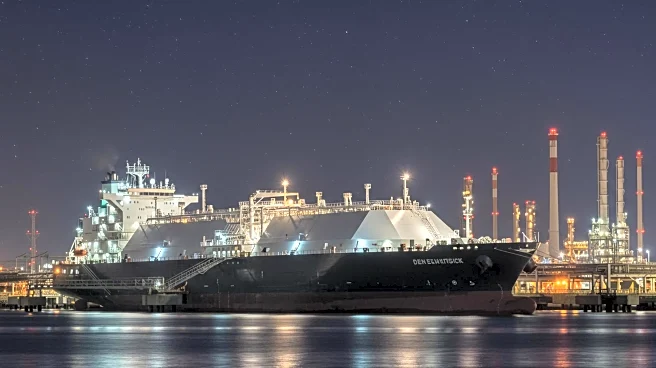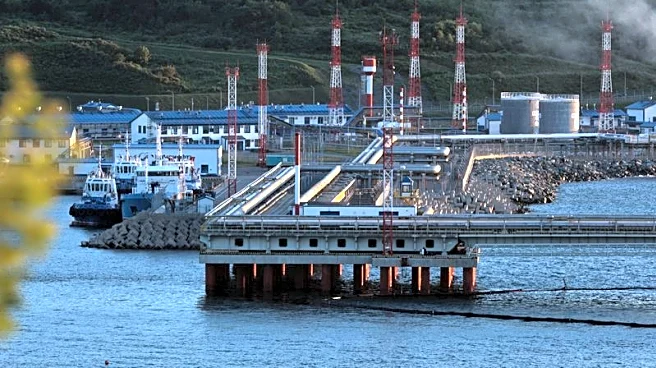What is the story about?
What's Happening?
Argentina is pursuing an ambitious plan to become a major player in the global liquefied natural gas (LNG) market through its 'Argentina LNG' initiative. This multi-phase project aims to leverage the country's vast Vaca Muerta shale resources to produce and export LNG. The initiative is divided into three phases, with the first phase involving a joint venture led by Southern Energy SA and Golar LNG, expected to start operations in 2027. Subsequent phases involve partnerships with Shell and Eni, targeting completion by 2030. However, the project faces challenges, including legal disputes over expropriation and the need for significant infrastructure development.
Why It's Important?
The success of Argentina's LNG initiative could significantly impact the global energy market by introducing a new major LNG supplier. This could diversify supply sources for countries in Asia and Europe, potentially reducing reliance on traditional suppliers like the US and Qatar. However, the project's ambitious timelines and legal uncertainties pose risks that could affect investor confidence and market dynamics. The initiative's ability to meet its production targets will be crucial in determining its competitive position in the rapidly evolving LNG market.
What's Next?
Argentina's legal battle with Burford Capital over the expropriation of YPF remains a critical issue that could affect the project's progress. The resolution of this dispute, expected by 2026, will be pivotal in determining the project's future. Additionally, securing shipyard capacity for the construction of new FLNG units and navigating fierce global competition from other LNG projects will be essential for Argentina to achieve its goals. Stakeholders will need to closely monitor these developments to assess the project's viability.
Beyond the Headlines
The Argentina LNG initiative highlights broader geopolitical and economic implications, including the potential shift in global energy supply chains and the strategic importance of energy independence. The project's success could bolster Argentina's economic standing and influence in international energy markets, while failure could reinforce existing challenges in attracting long-term foreign investment.
















